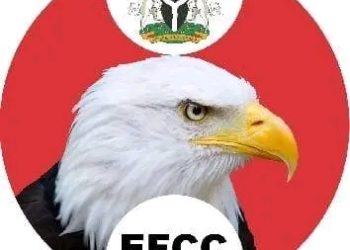ABUJA — Nigeria has deported another 51 foreign nationals convicted of cyber-terrorism, internet fraud and related financial crimes in Lagos, the Economic and Financial Crimes Commission (EFCC) said on Sunday.
EFCC spokesperson Dele Oyewale said the operation—conducted with the Nigerian Immigration Service (NIS) and the Nigerian Correctional Service (NCoS)—is the final tranche in a months-long removal process. The latest group comprises 50 Chinese nationals and one Tunisian, bringing the total number of foreign convicts deported from Lagos to 192.
According to the EFCC, the last batch departed Nigeria on October 16, following convictions handed down by the Federal High Court in Lagos on charges including cybercrime, money laundering and Ponzi-scheme operations. Deportations began on August 15 with a first cohort of 42 convicts—mostly Chinese and Filipino nationals—and continued in coordinated flights through August and September.
The convictions stem from a large sting on December 10, 2024, when EFCC operatives arrested 759 suspects during a raid on Oyin Jolayemi Street, Victoria Island, Lagos. Investigators say the network operated under the cover of Genting International Co. Limited, ran “large-scale online fraud, identity theft and cyber-enabled Ponzi schemes,” and trained local recruits while managing fraudulent digital platforms targeting victims in Nigeria and abroad.
Nigeria’s Immigration Service executed the removals in line with court orders and immigration procedures. Beyond China and Tunisia, deportees across the operation also included nationals of the Philippines, Malaysia, Pakistan, Kyrgyzstan and Timor-Leste, the EFCC said.
“All the deported convicts bagged their imprisonment when they were arrested with their Nigerian accomplices,” Oyewale noted, adding that the inter-agency exercise underscores Nigeria’s resolve to disrupt transnational cybercrime rings operating on its soil.
The EFCC said investigations tied to the Victoria Island raid are continuing, with efforts focused on tracing proceeds of crime, dismantling associated networks and prosecuting remaining suspects—both foreign and Nigerian—linked to the syndicate.




















